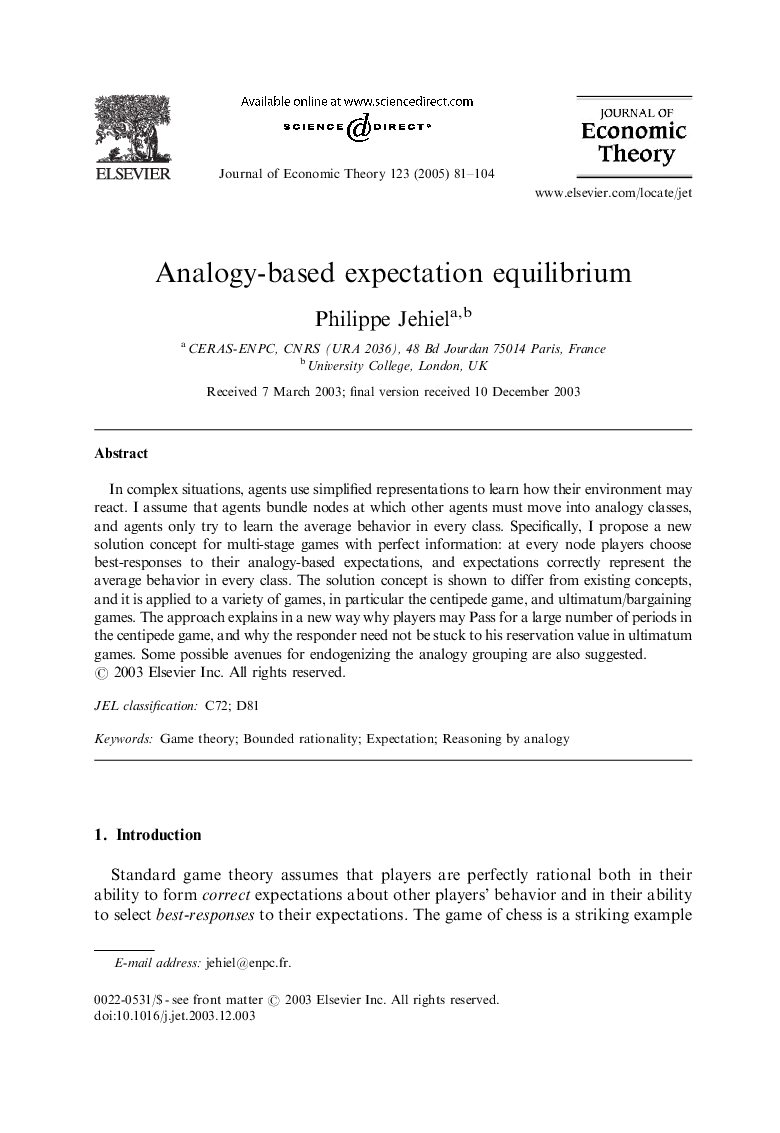| Article ID | Journal | Published Year | Pages | File Type |
|---|---|---|---|---|
| 10474830 | Journal of Economic Theory | 2005 | 24 Pages |
Abstract
In complex situations, agents use simplified representations to learn how their environment may react. I assume that agents bundle nodes at which other agents must move into analogy classes, and agents only try to learn the average behavior in every class. Specifically, I propose a new solution concept for multi-stage games with perfect information: at every node players choose best-responses to their analogy-based expectations, and expectations correctly represent the average behavior in every class. The solution concept is shown to differ from existing concepts, and it is applied to a variety of games, in particular the centipede game, and ultimatum/bargaining games. The approach explains in a new way why players may Pass for a large number of periods in the centipede game, and why the responder need not be stuck to his reservation value in ultimatum games. Some possible avenues for endogenizing the analogy grouping are also suggested.
Related Topics
Social Sciences and Humanities
Economics, Econometrics and Finance
Economics and Econometrics
Authors
Philippe Jehiel,
